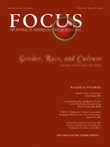As psychiatrists we are called upon each day to make ethically important decisions in the service of our patients, our communities, our students, our colleagues, and our profession. Many of these decisions are so routine and so subtle as to go unnoticed in the course of our work. Making a diagnosis, recommending one medication over another, obtaining consultation, supervising trainees, and documenting clinical information are ordinary practices involving ordinary choices. Other decisions rivet our attention, however, causing us to be uneasy, to question, and to seek clarity. Such decisions—involuntarily hospitalizing a suicidal elder, reporting suspected child abuse, or dealing with a serious clinical mistake made by a colleague—are more recognizably ethical because they overtly challenge our understanding of what is good and right and require us to use, purposely, the power that is entrusted to us by virtue of our professional role. Nevertheless, all of these decisions are intrinsically ethical, and applying insights derived from the field of psychiatric ethics may help us make them well or, at least, better than we might otherwise.
A central aim of psychiatric ethics is to analyze morally important, value-laden aspects of the care of people with mental illness and then make choices that reflect our best judgment and are true to our hearts. Psychiatric ethics is a growing field of multidisciplinary scholarship informed by conceptual work and empirical evidence. It encompasses abstract questions of humanness, humanity, moral agency, empathy, and spirituality; it also has taken on concrete questions related to measures of decisional capacity and voluntarism, construction of optimal confidentiality practices, efforts to establish and maintain therapeutic boundaries, assessments of harm-reduction strategies in the treatment of coexisting illnesses, and effectiveness of various research safeguards.
As explored in this issue of Focus, psychiatric ethics complements the invaluable guidance offered by forensic psychiatry. Ethics helps to characterize morally acceptable and sound courses of action across diverse circumstances, whereas the law assists us in defining what is permissible according to the shared rules that govern our society. Both provide information, analytic tools, and paradigmatic cases to enhance our ability to respond to issues that accompany the care of mental illness. Knowledge derived from psychiatric ethics and forensic psychiatry, taken together, fosters the expression of professional values and imparts key skills necessary for everyday psychiatric work.
This collection of papers covers key ethical and forensic considerations that arise in the care of mental illness. Like the decisions made by psychiatrists, some of these issues may seem relatively subtle, such as the ethical aspects of “tailoring” a patient’s chart, balancing tensions among the responsibility to document accurately, the duty to advance and protect the patient’s interests, and the challenges in fulfilling societal expectations (Dwyer). The papers on working to establish and maintain appropriate therapeutic boundaries (Gutheil, Gabbard), navigating confidentiality issues (Appelbaum; Herbert; Roberts), and responding therapeutically to “difficult patients” (Roberts) are important in part because they illustrate how clinical and ethical issues are essentially inseparable in optimal patient care. A number of papers in this issue (Hundert) offer practical strategies for problem identification and decision making that can be helpful in clinical practice, and another provides guidance for acting in the professional role as an expert witness (Gutheil). Other papers examine special considerations in evaluating an ill individual’s potential for self-harm (Chiles). This represents a high-risk situation from the perspective of patient safety, and it also has critically important legal and ethical repercussions that should be understood by all mental health practitioners (Roberts, McCarty et al). Finally, it is particularly exciting to see empirical reports among the ethics papers in this collection (Perkins). The dedicated effort over the past three decades, as reflected, for example, in the remarkable series of studies supported by the MacArthur Foundation, demonstrates how bias and misconceptions may be replaced with accurate, rigorously derived knowledge of ethics issues important to psychiatry, to medicine, and to society.

